Defiant children play on wrecked rocket in the Israeli desert – as IDF gears up to strike Iran nuclear sites ‘within days’
Children were seen playing on the wreckage of a missile in the Israeli desert on Wednesday as the IDF prepared to attack nuclear sites in Iran “within days.”
The small group of children and adults climbed atop the rocket in the Negev desert near Arad, in the wake of an Iranian missile attack on the area.
Israel could unleash an attack on Iran’s nuclear, oil and military facilities in response to the ballistic missile attack, it was feared on Wednesday evening.
The country’s political leaders are believed to favor significant and unequivocal retaliation, despite concerns that it could lead to a seismic wave of conflict in the Middle East.
On Wednesday evening, officials reportedly presented battle plans to their American counterparts while anticipating military action “within days.”
Meanwhile, Britain has urged Israel not to escalate the conflict. Thousands of British citizens remaining in the region.
Children and adults stand atop the remains of an Iranian missile in the Negev Desert near Arad, Israel
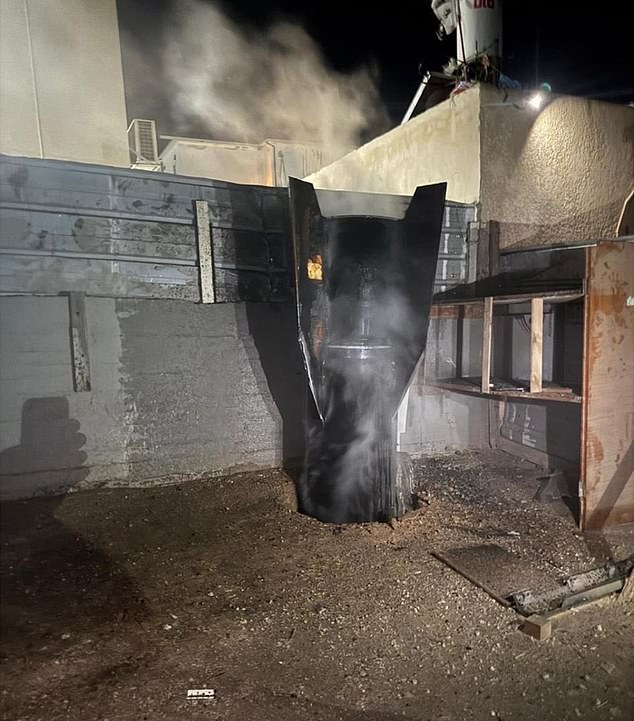
A missile apparently embedded in a building after Iran launched attacks on Israel
Sources say Israel is prepared to respond on its own – but wants to agree plans with allies who would likely be involved in thwarting further Iranian attacks. US President Joe Biden said yesterday that “it remains to be seen” how Israel will respond.
Fears over the scale of Israel’s retaliation and its wider impact grew as fighting intensified between the country’s forces and Iran-backed militias in southern Lebanon.
Eight Israeli soldiers were killed in clashes with Hezbollah fighters and dozens were injured. Fighting in Lebanon has led to the deaths of 1,263 people, mostly civilians, in the past two weeks.
Calls for Israel to adopt the strongest possible response to Tuesday night’s ballistic missile attack were led yesterday by a former prime minister.
Naftali Bennett, who left office in 2022, wrote on We have the justification. We have the tools. Now that Hezbollah and Hamas are paralyzed, Iran is exposed.”
His tough stance was supported by Israel’s main opposition leader, Yair Lapid, who said: ‘Tehran knows Israel is coming. The response must send an unequivocal message to the terror axis and to Iran itself.”
But Britain continues to fight a diplomatic rearguard action to prevent further escalation of the conflict. During a visit to a British military base in the eastern Mediterranean, Defense Secretary John Healey said he had told Israeli counterpart Yoav Gallant that Britain “completely condemns the war.”[s]’the Iranian attack.
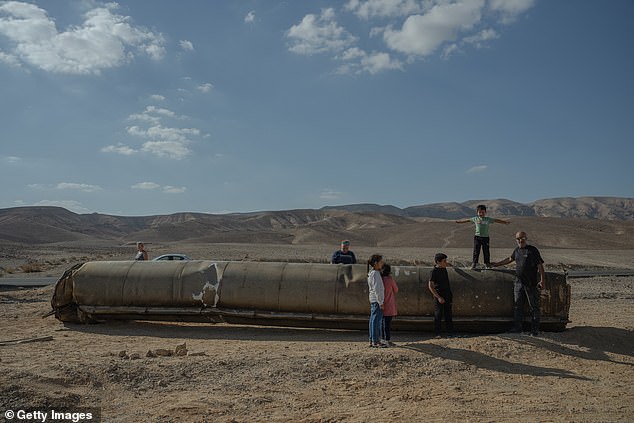
People take photos of and stand on the remains of a rocket in Israel
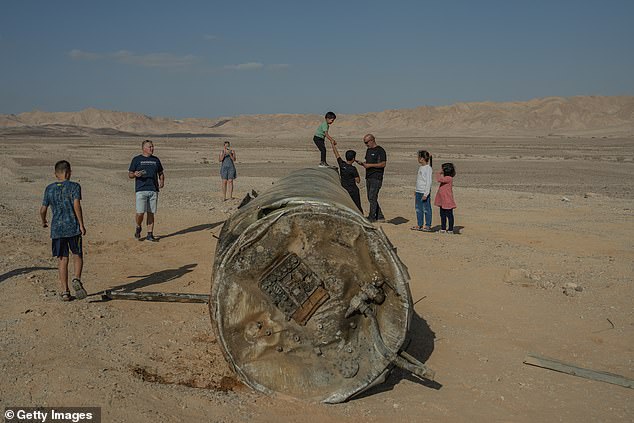
People inspect the remains of a fallen missile in Israel on Wednesday following a missile attack by Iran
But speaking to reporters, he stressed: “Our main concern is to prevent this conflict from spiraling out of control and turning into a wider regional war. Our position remains, and I have made this argument to him, that the best route to reducing the fighting is a ceasefire in Lebanon and support for a United Nations plan for a negotiated settlement.
“That’s the way we can get the Israeli families back to their homes in northern Israel, and the Lebanese families back home.
their houses.’ His call was echoed by United Nations Secretary-General Antonio Guterres, who told the UN General Assembly in New York that the tit-for-tat fighting must stop.
Mr Guterres said: ‘It is time to break the sickening cycle of escalation after escalation that is taking people in the Middle East straight over the abyss.’
On Wednesday evening, Sir Keir Starmer joined fellow G7 leaders in calling for de-escalation. Following an emergency meeting chaired by Italian Prime Minister Giorgia Meloni, the ‘Group of Seven’ released a joint statement expressing ‘strong concern’ over the recent escalation and stressing that a regional conflict is in no one’s interest.
In an effort to ensure that Israel’s response remains in line with that of its Western allies, President Biden will discuss the crisis with the country’s Prime Minister Benjamin Netanyahu.
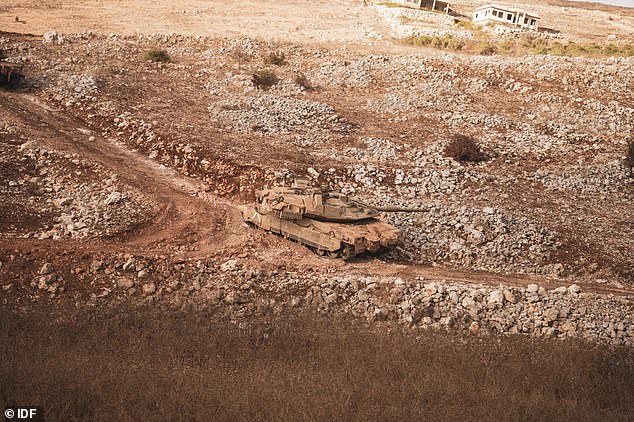
An Israeli tank is seen entering southern Lebanon
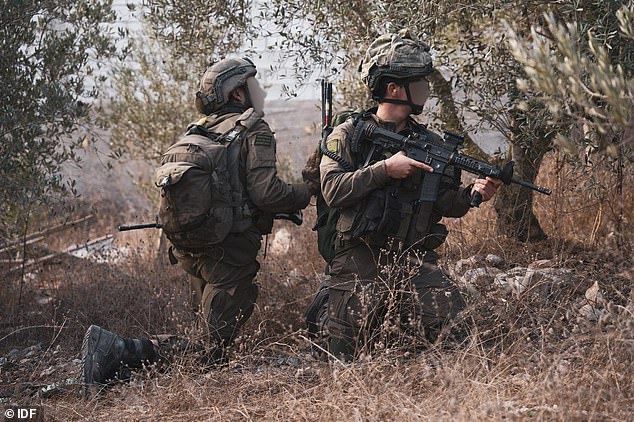
Israeli soldiers are seen entering rural areas of southern Lebanon ahead of an attack on Hezbollah positions
Rebel Tehran told the US to “step aside” and reiterated its warning of a “more crushing response” if Israel attacks its military or industrial infrastructure.
According to security sources, Israel and Iran have never been so close to a major war, with both states apparently willing to go ‘all in’ against the other.
Iran, increasingly aligned with Russia against the West, said yesterday that it is “not afraid of war” against Israel but also “not looking for escalation.” Tehran is believed to be close to developing nuclear weapons, although the government insists the country’s nuclear program is for peaceful purposes.
Iran’s UN envoy said Tuesday evening’s attack, which rained molten shrapnel from rockets on Israeli cities, was necessary to restore balance in the region.
Meanwhile, Israel continued its attacks on Gaza yesterday. According to local reports, 51 Palestinians were killed in an airstrike on a school – which the Israeli army says was being used as a base by Hamas.
A charter plane carrying British nationals from Lebanon landed in Birmingham on Wednesday night.
